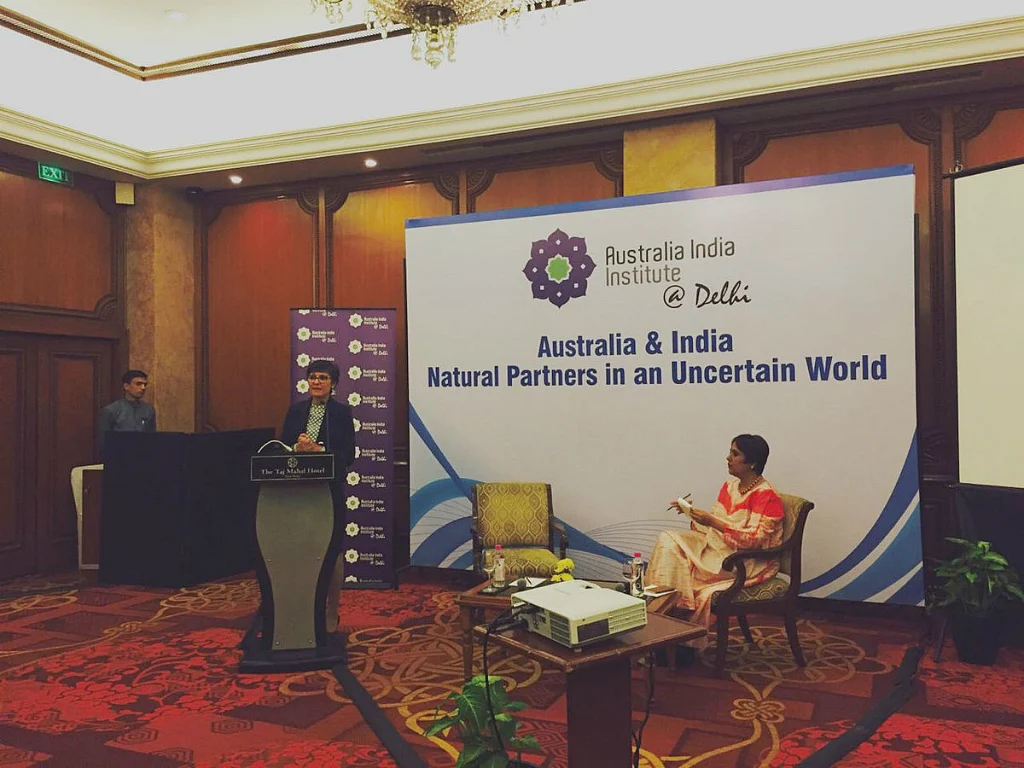Cultural change can promote gender equality in India: Australian HC
Australia would welcome the passing of the Women’s Reservation Bill in India, Harinder Sidhu says

Australia's High Commissioner to India Harinder Sidhu says that a cultural change in the Indian society could help address the worsening gender gap in the workforce.
"The first step is to make women more visible in society at all levels," Sidhu said, delivering the Alfred Deakin Lecture titled Australia and India, natural partners in an uncertain world. The talk was organised by the Australia-India Institute in Delhi on Monday.
“India and Australia share a commitment to advancing gender equality in all aspects of life – in politics, in business, in education and at home.”
She said during her address that the rate of women's workforce participation in India had worsened over the years, citing a World Bank Report released in March this year.
"This is despite decades of economic growth and increasing levels of women’s education," Sidhu added.
The diplomat noted during her address that India could add up to $ one trillion to its Gross Domestic Product (GDP) by 2025 just by ensuring that more women participate in the workforce.
"It makes economic and business sense. It builds fairer and more resilient societies," she said.
Sidhu said that Australia had lessons to offer to India when it came to ensuring a fairer labour market for women. She cited a programme in Australia involving male business leaders leading by example to promote gender equality in their own respective organistions.
"One strategy is the Male Champions of Change. Conceived by Australia’s former Sex Discrimination Commissioner, Liz Broderick, this program engages senior Australian businessmen – CEOs of some of Australia’s largest companies, to improve the performance of their companies on gender equality," she said.
The High Commissioner said that the response to the idea in India among prominent businessmen she had met was encouraging.
"I’m delighted to say that I have met many senior and visionary Indian leaders who support the Male Champions of Change idea," Sidhu observed.
When asked by NH if she would support the passing of the lapsed Women's Reservation Bill in Lok Sabha, Sidhu's office said that Australia would welcome efforts by India to advance women’s rights.
"Each country approaches challenges differently, and I don’t wish to comment on domestic legislative matters. However, Australia welcomes any measure taken by India to increase women’s participation in the workforce.”
At 59.4 per cent, Australia last year witnessed its highest women workforce participation ever. India's performance, on the other hand, leaves much to be desired. The National Sample Survey (NSS) data till 2011 showed that women workforce participation had plateued at 26-28 per cent in urban areas and dropped to 44 per cent from 57 per cent in 1987 in rural areas.
Touching on other themes during her speech, Sidhu made a strong pitch for increased bilateral cooperation between the two countries and a small group diplomacy approach to sort out differences among regional powers in the Indo-Pacific region.
"Australia and India are participating in small group meetings. As Prime Ministers Turnbull and Modi said this year, these aim to enhance regional and global peace and security. These include the trilateral dialogue among Australia, India and Japan, which has been taking place regularly since 2015," she said.
She said that Australia and India were natural partners, with the bilateral relationship finally coming of age.
"The foundations of this partnership are our shared values – democracy, open societies, individual freedoms and support for a rules-based international order," Sidhu said.
The diplomat also expressed hope that Australia and India would soon conclude negotiations on Comprehensive Economic Partnership Agreement (CECA).
The annual lecture is organised in memory of Australia's second prime minister Alfred Deakin.
Follow us on: Facebook, Twitter, Google News, Instagram
Join our official telegram channel (@nationalherald) and stay updated with the latest headlines
